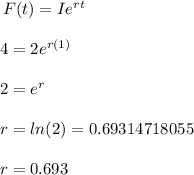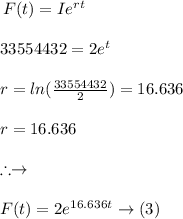Answer: We can model the problem by using the following formula:

Where F is the final bacteria and I is the initial bacteria at the start, r is the doubling constant, and t is time:

Therefore for the number of hours, the function is:

Similarly, for the number of days, the function is as follows:

Equation (3) is the final function.